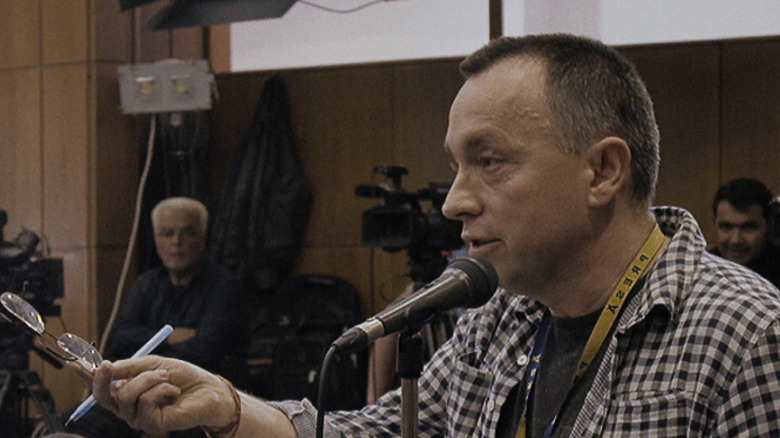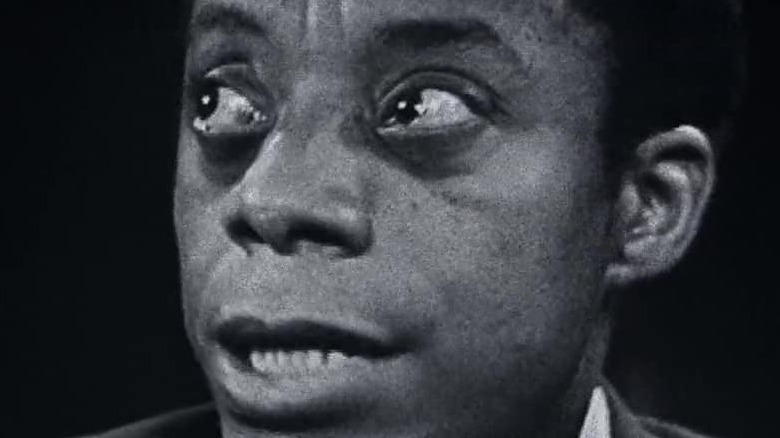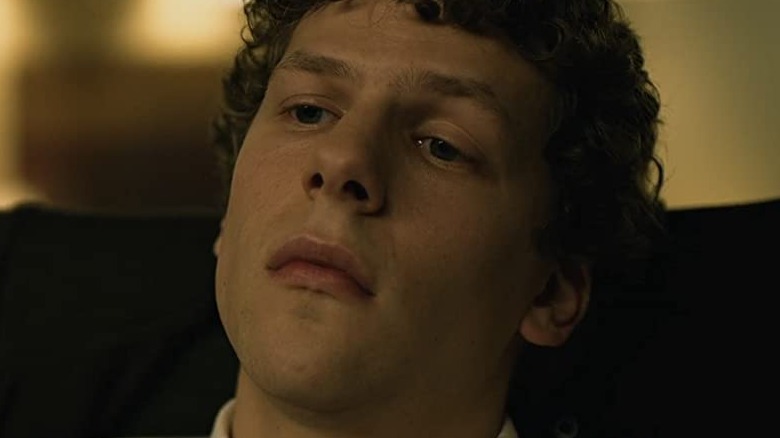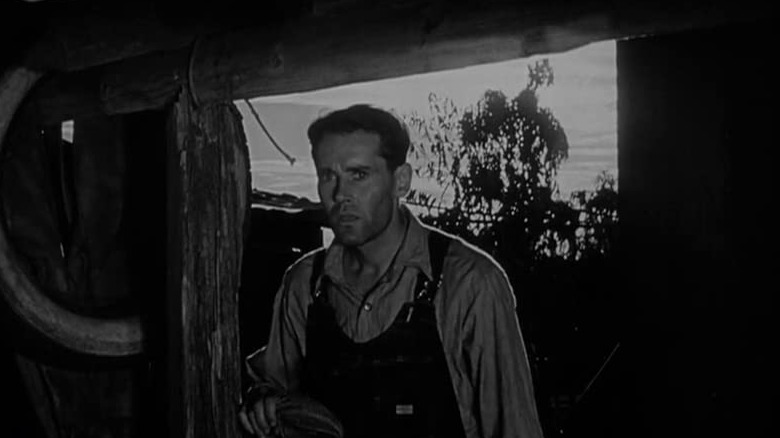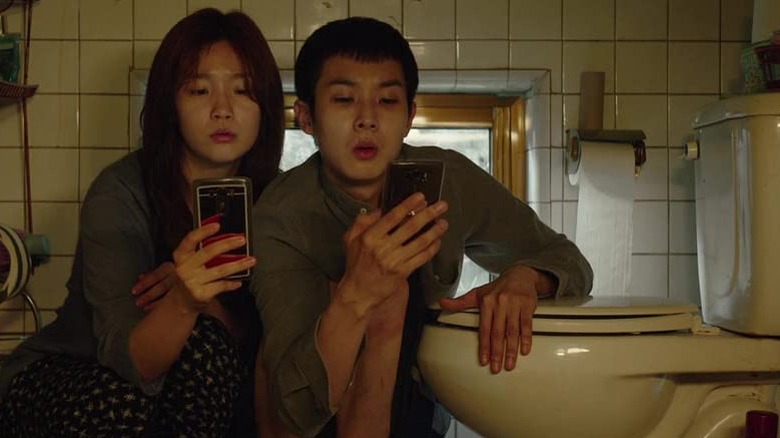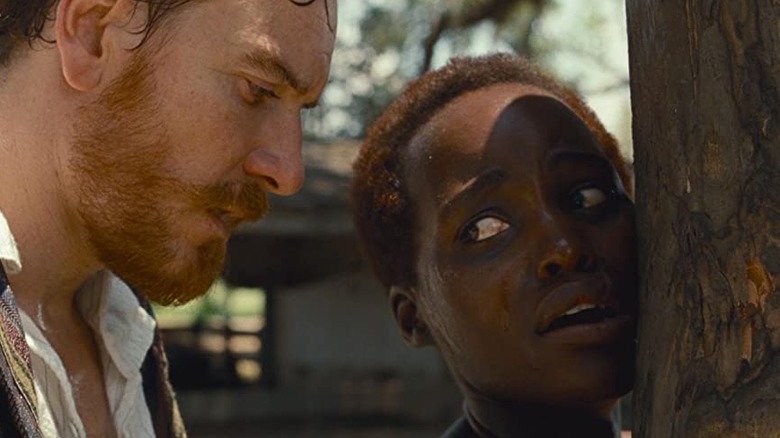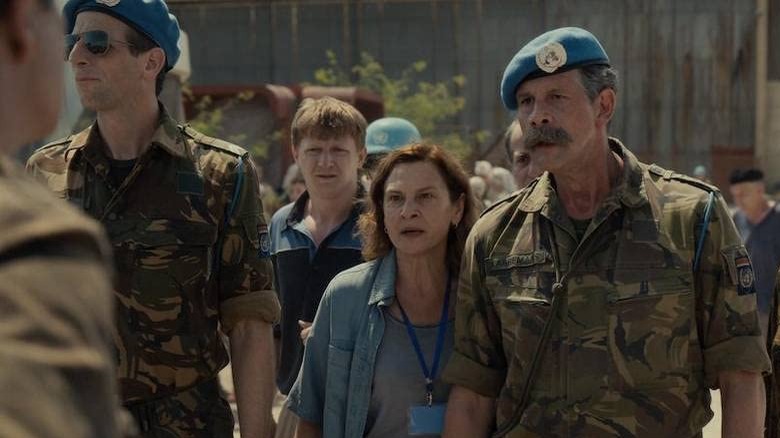The Only 9 Near-Perfect Movies You Can Watch On Hulu According To Metacritic
While what constitutes the perfect movie generally rests entirely in the eye of the beholder, those pictures that we all agree come close are almost always the same movies — the ones we've been watching for decades, that constantly top any and every best-of list you've ever seen. Those lists are dominated by movies you've probably heard so much about that it might feel like you've already seen them, even if you haven't. If you want to discover something truly fresh, you might have to make your search a little more specific. For instance, what near-perfect movies — as decided by the aggregated review scores on Metacritic — can you watch on Hulu?
These nine flicks are indeed, as advertised, near perfect. But they're drawn from far and wide and there's not a "Godfather" to be found. What you will find, though, may well change your life. At the very least, you'll be talking about them for a long time to come. From romance to war, from shocking Romanian documentaries to sumptuous French costume drama, there's something for literally every taste.
9. Collective
Oscar and BAFTA-nominated and sitting at a 95 Metacritic score, Alexander Nanau's documentary "Collective" is an incredible real-time investigation into a Romanian nightclub fire that killed dozens of young people. The surprising fact is, less than half of the victims died in the fire — the rest died in hospitals from preventable infections. The fallout from the revelations uncovered by the media ultimately unseats a government minster and proves that good journalism can come from surprising places. In this case, it's a sports newspaper breaking a corruption story that goes to the heart of who we are as a society. But more than that, "Collective" is compelling as hell, has twists and turns galore, and will leave you agog.
Highlighting the dangers of the media cozying up to a secretive and corrupt government, "Collective" also throws in the other side of the story. When a new Health Minster is appointed, he tries to unpick decades of nepotism and incompetence. His frustration is palpable, but nowhere near as powerful as that of the families of the victims.
In the way that only near-perfect movies can, "Collective" has had an enormous effect on Romanian audiences since opening in 2019. That year, Nanau told "Sight and Sound" just how effective his film had been. "I know from journalists that the number of whistle-blowers in Romania exploded after the film was released," he said. "People have started to talk and not just play along, not participate anymore. It's encouraging." That's the power of cinema, you know?
8. The Hurt Locker
Historic Oscar winner, box office behemoth, and critics' favorite (sitting at a comfortable 95 on Metacritic), 2009's "The Hurt Locker" is a rare combination indeed. An almost perfect intersection of script, performance, direction and production that resulted in one hell of a picture. Essentially a 38-day descent into PTSD, the movie expertly follows Staff Sergeant William James, bomb disposal savant, into addiction. From the highs of nearly dying in a suit that weighs a ton to the withdrawal of suburbia, director Kathryn Bigelow expertly documents the extra layers of emotional trauma that comes from discovering that facing death under heavy fire is your happy place.
The role of James is undoubtedly the highlight of Jeremy Renner's career. Managing a delicate blend of cocky, suicidal, and badass, you're unlikely to see a better performance from him, even as his career continues to soar. And he's not the only one who turned up to work — Anthony Mackie and Brian Geraghty, playing James' support on the bomb disposal team, spark beautifully off each other and with Renner. Let's take a moment, though, to appreciate Ralph Fiennes as the British team leader. His turning up in an unexpected action role, looking suitably grizzled, and being super-English under siege can be summed up in one word: Perfection.
7. I Am Not Your Negro
When James Baldwin died in 1987, he left behind 30 pages of an unfinished manuscript, "Remember the House." That text, left for so long, now lives through Raoul Peck's incredible 2016 documentary, "I Am Not Your Negro." Much of the dialogue is taken from the manuscript, allowing Baldwin himself to narrate the film over news and TV footage from the '60s. Its near-perfect Metacritic score of 95 proves that its power was not lost on audiences.
Baldwin ostensibly began "Remember the House" as a memorial to lost friends — specifically, civil rights leaders Malcolm X, Martin Luther King, Jr., and Medgar Evers. All of those men were assassinated in a five-year period, and Baldwin's recollections, laid over news footage from the time, make for moving watching. But "I Am Not Your Negro" also shows the author's personal experience of the Civil Rights Movement, as well as his friendships with the men who helped shape the movement. "The Guardian" recently called Baldwin "the most eloquent man in the America of his time." That is not hyperbole.
Spoken by Samuel L. Jackson, those words become more than just an unfinished autobiography, a lamentation for long-gone friends, fellow freedom fighters, and youth. Instead, it's a very real account of what being Black in America actually means. It's a timely and brutally beautiful reminder that the more things change, the more they stay very much the same.
6. Portrait of a Lady on Fire
Perhaps the most unique film on the list, 2019's "Portrait of a Lady on Fire" could be categorized in a hundred different ways. Part history lesson, part lesbian romance, part class commentary, it wears a ton of different hats and every single one of them looks fabulous. But mostly, it's about women. Despite being set in the late 1700s, the themes of freedom of choice and freedom (or lack thereof) feel chillingly modern — and its Metacritic score of 95 can attest to its resonance with audiences.
Back then, it seems the only way to get a husband (whether you wanted one or not) was to arrange a wedding, have a portrait of yourself sent to your betrothed and wait to see if he approved. The only way to stay single was to avoid any artist that came within a hundred miles of your face. And that's exactly what Heloise does when her mother springs an arranged marriage on her.
Not to be deterred, though, mother dearest arranges for a female "companion" for her daughter. Which seems nice — except that she's actually an artist, there to secretly paint the engagement portrait. What follows, after Heloise is told her companion's true purpose, is a treatise on art, love, social standing, and the way people see each other. Or, as Variety so eloquently put it, "One can hardly ignore the fact, as true then as it is now, that the world looks different when seen through a woman's eyes." It's lush, romantic, smart, and just beautiful.
5. The Social Network
The story of how Mark Zuckerberg took over the world might seem an odd choice for the pairing of David Fincher and Aaron Sorkin at first glance. But as the twisting, manipulative story of "The Social Network" unfolds, it's clear why the pair jumped on this project. The movie essentially recounts — in graphic, if mildly fictional, detail — the birth of Facebook, in particular its nerdy founder's insecurity. From Trent Reznor and Atticus Ross' menacing score to the freakery that is Armie Hammer's dual performance as the Winklevoss twins, from Sorkin's scathing script to the dark cinematography that perfectly matches the grim display put up by all parties, "The Social Network" is a unique piece of film.
Compelling despite the rampant misogyny and unchecked greed, funny despite being horrendous, and beautiful regardless of what's on screen, this is a movie that excels in every department (as its Metacritic score of 95 can attest). And that's before we get to the "Karate Kid" reference, or Justin Timberlake's entrepreneur being asked about his "last preneur," Sorkin's trademark humor more than balances out the film's inherent darkness, but never threatens to undermine it. And the joy of trying to work out what's real and what's not is delicious. Come for the gossip, stay for the art. You'll thank us.
4. The Grapes of Wrath
The age of this 1940 film might make it stand out from the rest of this list, but watch it and you'll immediately understand why it's on here. Dealing with themes that still ring true 80 years later, including poverty, otherness, climate change, and how the march of technology cares little for the individual, "The Grapes of Wrath" is possibly as important today as it was upon its release. That's why it still sits at 96 on Metacritic.
Joining the Joad family as they drive their rickety old truck west, from their Oklahoma dustbowl home to the glittering domes of California, the journey covers thousands of physical miles and just as many emotional ones. Engaging with the socialist leanings of John Steinbeck's original novel, director John Ford packs the movie with rock bottom after rock bottom. Death, starvation, corruption, and bigotry all raise their head, but the family deals with it all as an unbreakable unit.
The parallels between the Joads and the struggles faced by so many modern families are hard to ignore. That said, there are moments of out and out humor as well, breaking the tension while ramping up the realism. The best? Henry Fonda's Tom Joad, describing his mother: "I seen her nearly beat a peddler to death with a live chicken." Genius.
3. Parasite
At first glance, 2020's Best Picture Oscar winner is deceptively simple — the story of a family of con-artists who wheedle their way into the home of a gullible and privileged but well-meaning couple. "Parasite," though, is so much more than that, as its Metacritic score of 96 can attest. Ultimately, it's a masterclass in manipulation and disinformation, making it the perfect movie for our time. There is, however, more than one twist as the story unfolds, and by the halfway point, you'll have no idea what's coming next.
Taking in greed, poverty, class, and the downsides to word-of-mouth recommendations, the film is driven by the question of just who is the real parasite — and it's a far more complicated question than you might expect. Moving seamlessly through comedy, thriller, tragedy, and horror, all while showing tons of heart without an overreliance on sentimentality and even managing to end on a hopeful note, Bong Joon Ho has crafted as near-perfect a movie as you'll ever see. And part of that comes from the complete and total commitment to the universe "Parasite" inhabits. That amazing house? Built from scratch, and the architect is completely fictional. Even the food is fictional. Yup, Ram-Don is creation straight from the palate of the director, combining two types of instant noodles. It's only with the addition of sirloin steak that it becomes a dish fit for an upper-class child. That's what we call layers.
2. 12 Years a Slave
Steve McQueen's masterfully shot, beautifully written, and superbly acted Oscar winner is a breathtaking, heartbreaking, sobering piece of work. Long, languishing shots of the beauty of the southern countryside sit jarringly alongside scenes of horrendous cruelty and the worst humanity has to offer. Happy ending or not, there are no winners in this true-ish tale of a free Black man kidnapped and thrown into slavery for a dozen years.
As depressing as all that sounds, if you're after searing performances that will stay with you long after the credits roll, you're in the right place — that's exactly what earned the film its impressive Metacritic score of 96. Every single role is played with levels of intensity and commitment rarely seen in commercial film. But Lupita N'yong'o's Patsey will, frankly, stamp herself into your brain and refuse to leave. Desperate, vulnerable, and absolutely furious, it's a powerful mix from an actor at the top of her already considerable game, thoroughly deserving of the Oscar she won for her big-screen debut. In fact, the only downside of the entire production might be Michael Fassbender's accents, which sometimes makes him sound less like a man from the American south and more like a German Matthew McConaughey. And then there's Brad Pitt — sounding like somebody else has never been his strong suit.
But if all that's wrong with a movie are a couple of occasionally dodgy accents, then that's about as high a recommendation as anyone could possibly give. If you haven't already, go see this film on Hulu right away.
1. Quo Vadis, Aida?
Now, it probably hasn't escaped your notice that the films on this list definitely wouldn't be described as a ton of fun. For some reason, funny movies generally aren't considered the pinnacle of the art form, but that's a discussion for a another day. At the top of the list with a Metacritic score of 97, 2020's "Quo Vadis, Aida?" doesn't break the not-a-lot-of-laughs theme. Instead, what is does is shock the living hell out of you from about 10 minutes in. If you were quite young during the conflict in Bosnia, then it may not have left much of a mark on your consciousness. But this film absolutely will.
Set during the 1995 siege of Srebrenica, the movie follows a local U.N. translator as she tries to save her husband and sons from the invading forces. The twist is that all four of them are on a U.N. base and supposedly safe. As soon as she utters the immortal line, "They can't touch the U.N.," it's inevitable that they very much can — and they very much do. If even 20% of the claims made in this movie are true, the U.N. has a lot of explaining to do. From allowing armed soldiers on to the base to search refugees, to not providing those same refugees with food, water or a toilet, the punches just keep coming. And there's a good chance a lot of it does have some basis in truth — the married team of filmmakers behind the movie, Jasmila Zbanic and Damir Ibrahimovic, actually met during the siege. The rest, in part, comes from the former head of Bosnian civil affairs at the U.N.
If you don't come away from this movie in absolute pieces, livid that any of it was allowed to happen at all, then, frankly, you're dead inside. For everyone else, we feel you. You will not be the same afterward. And that's why we call it art, right?

